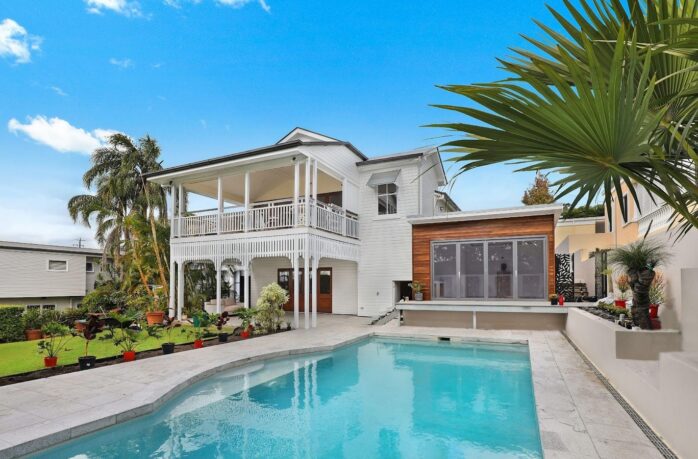
Nowadays, you don’t have to look far and wide to obtain a home loan since you can get various home loans from the market. Thanks to the proliferation of alternative loan services, acquiring a home is now more feasible than in the past decades. Researching each one of them can give you a good idea of which of them suits your needs best.
But what exactly are your needs? This is what you have to determine first if you want to find the best home loan for you. Things like where the property is located or what kind of incentives you can give to lenders are just some things you must consider.
This article will discuss some types of home loans you can get for your first dream home. Let’s start.
1. Conventional Loans

Conventional loans are a type of home loan not insured by the federal government. This type of loan is typically fixed-rate, which means the interest rate will not change throughout the life of the loan. Although they are called conventional loans, which means they are the most common, they are also some of the strictest regarding requirements. Their requirements include:
- A bigger down payment.
- A high credit score.
- A lower debt-to-income ratio.
- The potential for private mortgage insurance.
2. Conforming Loans
A conforming loan is any mortgage that either Fannie Mae or Freddie Mac can purchase. If you don’t know these terms, they are both the federally-backed mortgage companies created by the US Congress. That said, conforming loans are types of mortgages that have a set of criteria. For example, for a loan to be considered conforming, it should be below the dollar limit.
The maximum dollar limit for most parts of the US is $647,200. If the loan amount is more than this limit, then your lender won’t be able to sell the loan. Also, it must not be a federally backed loan.
In short, conforming loans must follow specific guidelines if the lender wants to sell them to Freddie Mac or Fannie Mae. However, since a conforming loan can be sold, it’s less risky for lenders. Thus, this also means that the interest rate can be negotiated lower for you.
3. Non-Conforming Loans

If the loan you’re offered doesn’t meet these standards, then it’s a non-conforming loan. For example, the loan exceeds the dollar limit for loans, or it requires collateral. And because it’s a non-conforming loan, it can’t be sold to Fannie Mae and Freddie Mac. However, the requirements and guidelines for this type of loan are less strict, so getting approval is easier.
Most of them are federally-backed loans like FHA loans. However, they usually have a higher interest rate unless they require collateral. This is especially true if the loan comes from a private lender or institution.
4. Construction Loans
A construction loan, according to Montgomery Homes, can be a good choice if you’re more interested in building your own house.
For this one, you can have two separate loans; one for the construction and one for the mortgage. However, you can also wrap the two together, called a construction-to-permanent loan. The thing about this type of loan, however, is that they typically need a bigger down payment, and you also need to prove to your lender that you can afford the loan.
5. Federal Housing Administration Loans

Federal housing administration loans, or FHA loans, are loans the US Department of Housing and Urban Development offers American citizens. Compared to conventional loans, FHA loans have stricter requirements, making qualifying easier. This makes them a very good choice for first-time homebuyers because they have less stringent requirements and only require a very low down payment of as low as 3.5%.
But of course, there is a catch. FHA borrowers would also have to pay a mortgage insurance premium and monthly payments. Mortgage insurance is a policy that protects the lender or the titleholder if the borrower suddenly defaults on the mortgage due to various reasons like death.
6. Jumbo Loans
As the name suggests, Jumbo loans are a type of home loan meant for properties beyond the conforming loan limits. This loan is convenient if you’re planning to buy an expensive home in higher-cost areas like Hawaii, San Francisco, Los Angeles, and New York City. Even though the property is expensive, the rate for jumbo loans is often competitive. Of course, however, there are downsides to jumbo loans.
For example, you would have to give the down payment at least 10-20% of the property. You must also have a FICO score of at least 700 or higher. Your DTI should also be under 45%. You also have to prove to your lender that you have significant cash or savings accounts assets that can serve as potential payments once you default.
7. US Department of Veteran Affairs Loans

The US Department of Veteran Affairs loans, or VA loans for short, are guaranteed mortgages made by qualified lenders. The VA themselves aren’t making the loans, but they will help you get favorable terms for housing, even ones without you having to pay a down payment. Typically, VA loans are easier to qualify than conventional loans. Also, lenders typically limit the maximum VA loan to conventional loan limits.
However, before applying for a VA loan, you must get approval from your VA first. If the VA deems you eligible for a VA loan, they will give you a certification of eligibility, which you can show your lender so you can apply for a VA loan.
8. Interest-Only Mortgage
With this type of loan, the borrower is expected to only pay off the interest on the loan for a period, usually around 5-7 years. Once you pay off the interest, the monthly payment will increase as you begin to pay off the principal amount. Therefore, these loans are only best for people who know they can easily sell or refinance the loan or afford to pay the increased monthly.
Final Words
Buying your first home is always exciting; however, one of the things that you need to be prepared for is the financing. And let me tell you, financing a new home is not easy, so we gave you examples of the types of loans you use when purchasing a house. Do your research first and find one that suits you the most.











